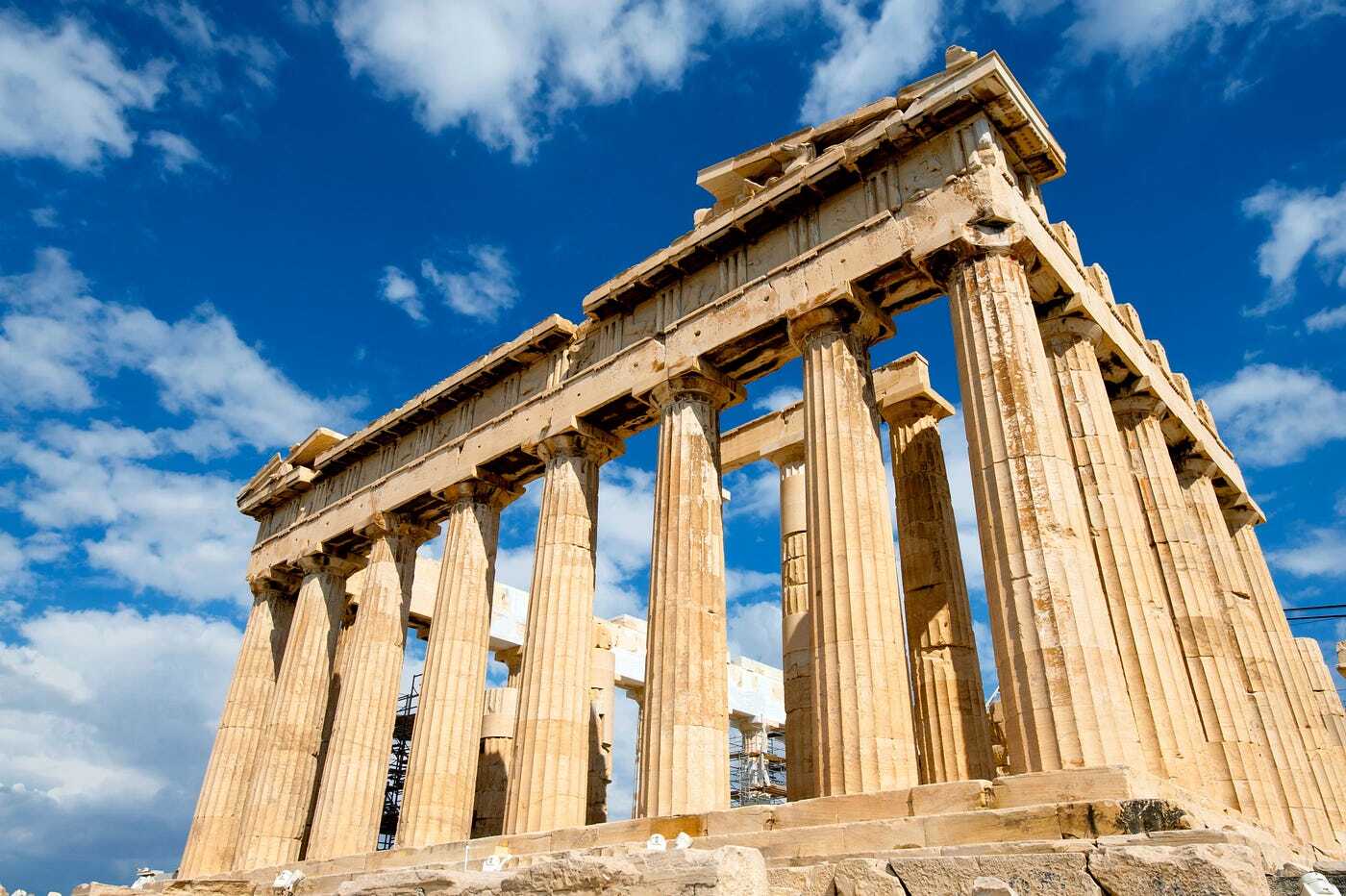
What is Hellenization? Hellenization is the process by which Greek culture, language, religion, and identity were adopted by non-Greek peoples. This cultural phenomenon began in the 4th century BC and gained momentum during the Hellenistic period, following the conquests of Alexander the Great. His empire's expansion spread Greek influence far and wide, from Egypt to Persia. Greek language, philosophy, and customs became integrated into local traditions, creating a blend of cultures. This cultural diffusion wasn't just a top-down process; it involved mutual exchange and adaptation. The legacy of Hellenization continues to shape modern Western civilization, influencing art, architecture, and intellectual thought.
What is Hellenization?
Hellenization is the process where non-Greek peoples adopted Greek culture, language, and customs. This cultural transformation had a profound impact on the ancient world.
-
Definition of Hellenization: Hellenization refers to the adoption of Greek culture, including language, religion, and customs, by non-Greek populations.
-
Historical Context: The process began in the 4th century BC, gaining momentum during the Hellenistic period (323–146 BC).
The Role of Alexander the Great
Alexander the Great played a pivotal role in spreading Greek culture across his vast empire. His conquests laid the groundwork for Hellenization.
-
Alexander the Great: Alexander's conquests spread Greek culture throughout his vast empire, laying the foundation for Hellenization. His tutor, Aristotle, played a crucial role in instilling Greek philosophy and culture in Alexander.
-
Spread of Greek Culture: After Alexander's death, his generals continued to spread Greek culture through the founding of new cities and military colonies. These centers of administration and power facilitated the diffusion of Greek culture.
The Hellenistic Period
The Hellenistic period saw the rise of three major dynasties that furthered the spread of Greek culture.
-
Hellenistic Period: The Hellenistic period saw the establishment of three major dynasties: the Ptolemies in Egypt, the Seleucids in Syria and Persia, and the Antigonids in Greece and Macedonia. Each of these dynasties contributed to the spread of Hellenization.
-
Ptolemaic Kingdom: The Ptolemaic Kingdom, founded by Ptolemy I, was one of the wealthiest and most influential Hellenistic states. It included Egypt, parts of Arabia, Palestine, and Cyprus. Ptolemy I actively promoted the blending of Egyptian and Greek cultures, establishing Serapis as a state religion.
-
Seleucid Kingdom: The Seleucid Kingdom, founded by Seleucus I Nicator, encompassed much of the Persian Empire, including Asia Minor, Mesopotamia, and Iran. This kingdom was known for its complex cultural dynamics and required a strong bureaucracy to maintain control.
-
Antigonid Kingdom: The Antigonid Kingdom, which ruled Macedonia and parts of Northern Greece, was the only completely Greek kingdom among the three major Hellenistic states. It was weaker than the Seleucid Kingdom but more unified and militarily powerful.
Cultural Diffusion and Influence
Greek culture spread through various means, including language, philosophy, and architecture.
-
Greek Language: The spread of the Greek language was a crucial aspect of Hellenization. It introduced Greek literature and philosophical thought to regions previously dominated by other languages and cultures.
-
Greek Philosophy: Greek philosophy, particularly the works of Aristotle and other prominent philosophers, had a profound impact on the intellectual landscape of the Hellenistic world. This intellectual influence helped shape the cultural and philosophical discourse of the time.
-
Cultural Diffusion: The spread of Greek culture was not merely a top-down process but also involved the adoption of local customs by Greek colonists. This cultural diffusion varied by place and social class, with the Greco-Macedonian elites generally maintaining their Greek identity.
-
Hellenistic Architecture: The Hellenistic period saw the construction of numerous Greek-style buildings, including temples, theaters, and amphitheaters. These structures were built in various regions, reflecting the widespread influence of Greek architecture.
-
Greek Theatre: Greek theater flourished during the Hellenistic period, with performances of plays by authors like Euripides and Sophocles. Theaters built during this time, such as the one at Ai-Khanoum in modern-day Afghanistan, showcased Greek architectural features.
Centers of Learning and Religion
Hellenization also influenced centers of learning and religious practices.
-
The Great Library of Alexandria: The Great Library of Alexandria, founded by Ptolemy I, was a major center of learning that attracted scholars from all over the ancient world. It played a significant role in preserving and disseminating Greek knowledge.
-
Serapis Cult: The cult of Serapis, a deity combining Egyptian and Greek elements, was promoted by Ptolemy I as a state religion. This cult symbolized the blending of cultures and the spread of Greek influence in Egypt.
Hellenization in Judea and Beyond
The influence of Greek culture reached Judea and other regions, leading to complex cultural interactions.
-
Jewish Hellenization: In Judea, the Seleucid and Ptolemaic kingdoms led to periods of warfare and instability. The Jewish elite adopted Greek names and customs, but Jewish culture also adapted elements of Hellenism while maintaining its distinct identity. The Maccabean Revolt against Antiochus IV Epiphanes was a significant response to the suppression of Jewish customs.
-
Hellenization in Judea: The Hellenization of Judea was complex, with some Jewish leaders adopting Greek practices while others resisted them. The establishment of Greek institutions and the suppression of Jewish customs led to tensions that culminated in the Maccabean Revolt.
-
Chanukah: The Maccabean Revolt led to the rededication of the Temple in Jerusalem, which is celebrated in the Jewish holiday of Chanukah. This holiday commemorates the liberation of the Temple from Hellenistic influence.
-
Parthia and Hellenization: The Parthian Empire, which emerged as a major power in the region, also experienced Hellenization. However, the Parthians maintained their distinct cultural identity while adopting certain Greek practices.
Legacy of Hellenization
The impact of Hellenization continued to shape cultures and civilizations long after the Hellenistic period ended.
-
Byzantine Empire: The Byzantine Empire, which succeeded the Roman Empire, continued to influence the spread of Greek culture. The Byzantine Greeks maintained a strong Hellenic identity, which played a significant role in shaping the cultural and intellectual landscape of the region.
-
Greek Nationalism: Greek nationalism emerged during the Hellenistic period and continued to influence the development of Greek identity throughout history. This nationalism was often tied to the spread of Greek culture and the preservation of Hellenic traditions.
-
Hellenocentrism: Hellenocentrism refers to the cultural and intellectual dominance of Greek culture in the Hellenistic world. This phenomenon was characterized by the widespread adoption of Greek language, customs, and philosophical thought.
-
Dehellenization of Christianity: The early Christian Church experienced a process of dehellenization, where Christian theology and practices were differentiated from Greek culture. This movement aimed to establish Christianity as a distinct faith separate from Hellenistic influences.
-
Philhellenism: Philhellenism, or the love of Greek culture, emerged in the mid-19th century as a movement to promote Greek language and customs. This movement was significant in the context of modern Greek nationalism and the preservation of Hellenic heritage.
-
Legacy of Hellenization: Despite the eventual decline of the Hellenistic period, its cultural and intellectual legacy continues to influence Western civilization. The spread of Greek culture laid the groundwork for future intellectual and artistic developments, shaping the course of human history in profound ways.
The Lasting Impact of Hellenization
Hellenization wasn't just a fleeting trend; it reshaped the ancient world in ways still felt today. Greek culture, language, and philosophy spread far and wide, influencing everything from architecture to religion. Alexander the Great's conquests laid the groundwork, but it was the continued efforts of his successors that cemented Greek culture's place in history. Cities like Alexandria became hubs of learning and culture, blending Greek and local traditions. Even in places like Judea, where resistance was strong, elements of Greek culture seeped in. The legacy of Hellenization is evident in modern Western civilization, from our democratic ideals to our artistic expressions. Understanding this process helps us appreciate the rich tapestry of cultural exchange that has shaped human history. Hellenization's impact is a testament to the enduring power of cultural diffusion and adaptation.
Was this page helpful?
Our commitment to delivering trustworthy and engaging content is at the heart of what we do. Each fact on our site is contributed by real users like you, bringing a wealth of diverse insights and information. To ensure the highest standards of accuracy and reliability, our dedicated editors meticulously review each submission. This process guarantees that the facts we share are not only fascinating but also credible. Trust in our commitment to quality and authenticity as you explore and learn with us.


